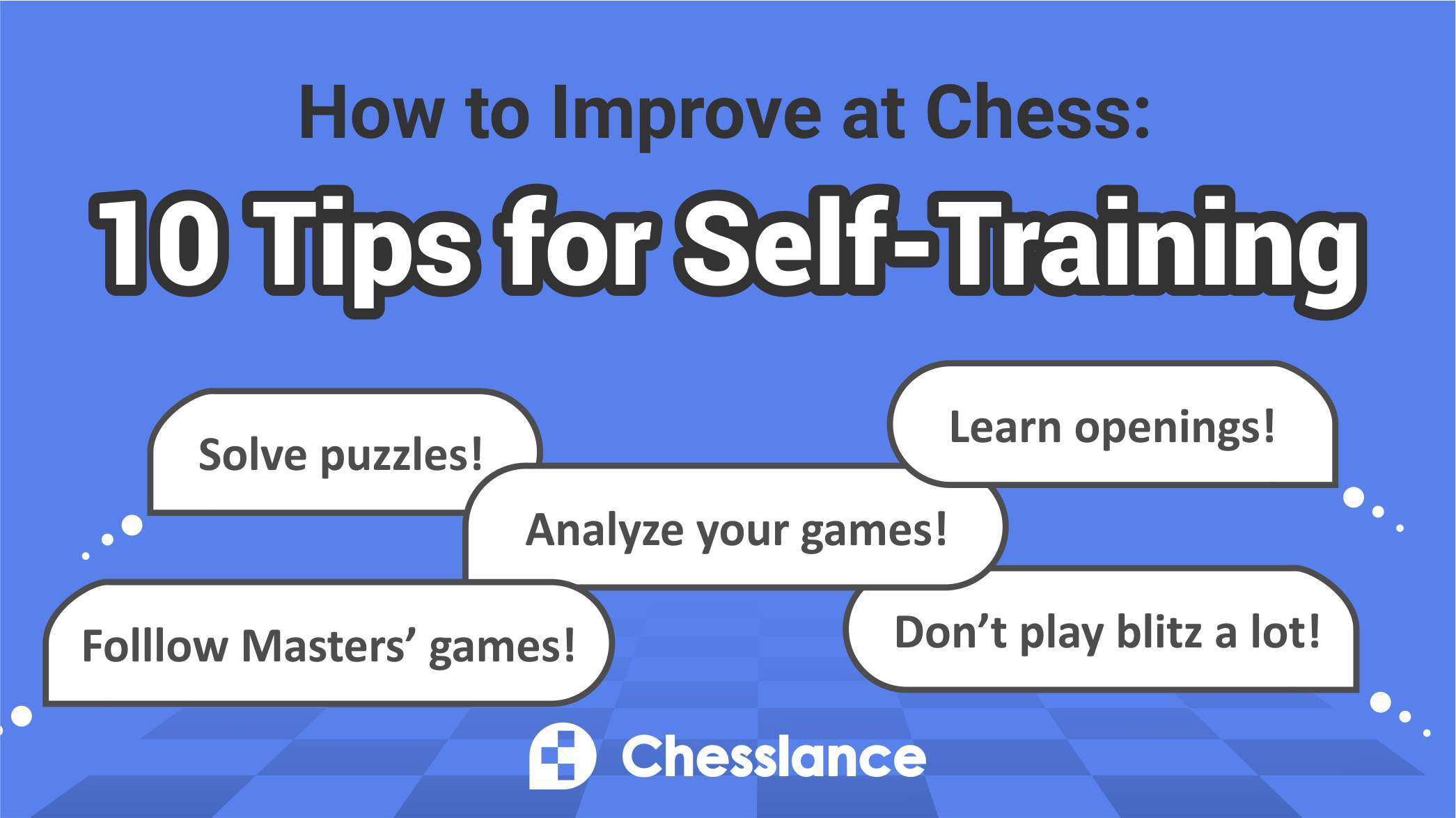
Self-training is a fundamental part of your development. Start your preparation with these guided points, plan your study in a disciplined way, and believe in yourself. I am writing this article through my experiences to share some details about self-training. These are the 10 Tips for Self-Training, which you can focus on the most during a self-training.
Self-Training Tip: Let yourself develop naturally
Players, who practice a lot, develop naturally. It works even better when you challenge yourself by playing with better players than you.
There are so many naturally talented players who got successful chess carrier. For example, Mir Sultan khan never studied anything but developed a lot just by playing. He won against Capablanca and was in the world’s top ten players.
I personally know one GM named Abhijit Kunte, who said in one of the interviews that he used to play chess 10-12 hrs. a day. It doesn’t mean the theory isn’t essential, you still need to study. But also let yourself develop naturally by practicing.
Self-Training Tip: Chess school or chess coach role
If you are in any chess school or have a coach, the most common mistake is that players only rely on them and don’t do anything. You should not practice only during the training hours you have with them, but also study at home. If you are not sure what to do, ask your teacher for suitable study material for self-training.
Self-Training Tip: Books and Videos
Become knowledge-hungry. From beginner to advanced levels players can find useful content from books and videos. Bobby Fischer once said all he needed was a small room, his books, a pocket chess set, and a window with a nice view. Garry Kasparov also said once: “use your computer”
Attack
Make your attacking skills better. It will help you in defense also as you can spot the attacking chances of the opponent and anticipate them.
On the other hand, practical chess shows the attacking side most of the time gets something even attack cannot succeed. For example, your opponent may skip checkmate but he has to give you something for defense. Prepare a strong mating attack.
Defense
Do not neglect this part as it has less study material and less content on the net. In so many games players lose when they don’t find the right defense. It makes your opponent down when he is not able to do anything. Learning prophylaxis will help you in defense a lot.
Best games collection
Find some best games collections. I also suggest remembering some best games (a minimum of 100 games). If it seems like too much for you, find your own number of games, but learn them well! For example, Magnus Carlsen once said that he can remember 10000 games.
Remembering games means remembering so many aspects of them, that if you get the same pattern, you understand how to play it.
Calculation
Calculation has a big part in chess studies. Only being able to calculate long variations is not enough, deep calculation, avoiding too much calculation, or how not to miss moves are also important aspects of it.
I have seen some players calculate their own candidate moves and play and then realize they were having a threat. As a result, they were not able to decide which variation to play and got into time trouble. Some fall into Kotov syndrome, where a player gives up the calculation due to time pressure or fatigue and plays another move without calculating it.
Study imbalances
All strong players have a good command of Imbalances in space, material, pawn structure, weak squares, superior/inferior minor pieces, etc. It offers a player an idea of what to do… which piece should be on board and which should not? Study them nicely to get good results.
Work on your weakness
Once GM Garry Kasparov said that he was not so good with Bishop’s moves. He was not able to use his bishop to his full potential. To come over he removed other pieces and only kept bishops, kings, and pawns. He gave only knights, pawns, and kings to his friend and played some games to practice bishop play. You can find your weakness and find some solutions to come over.
Try to grab all things one after one
One of the most important in 10 Tips for Self-Training.You can include all important topics in your study, including opening, middle game, endgame, tactics, positional play, planning, thinking process, calculation, pawn structures, etc.
But get a master’s in one at least, and then go for another. Usually, you should study one subject for 2-3 months to know it well. Those, who don’t play full-time, may need to give more months to master it.
One of my students works on tactics a lot, so I also used to have fear while playing with him that any tactical blow may come my way. If your calculation is good, you can make your opponent nervous.
“These are the 10 Tips for Self-Training chess players. If I am missing anything you can let us know in the comments, which will be helpful for others to gather more information.”